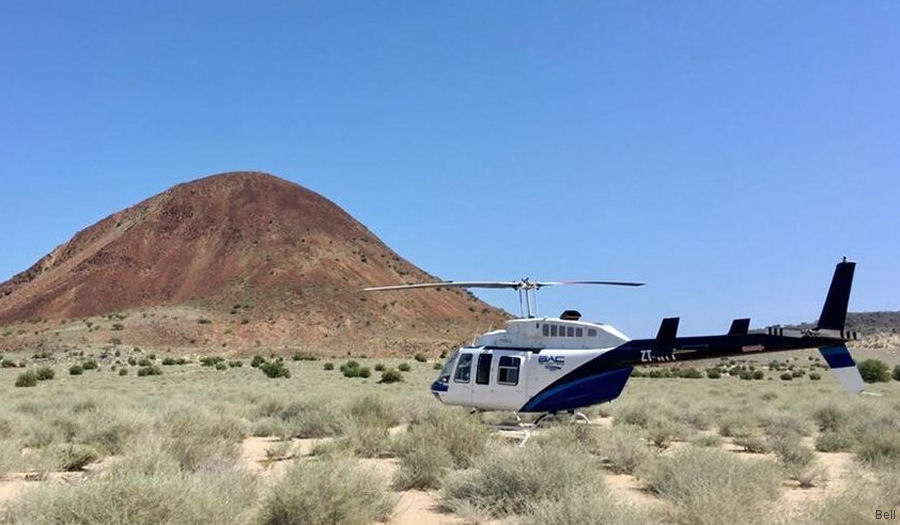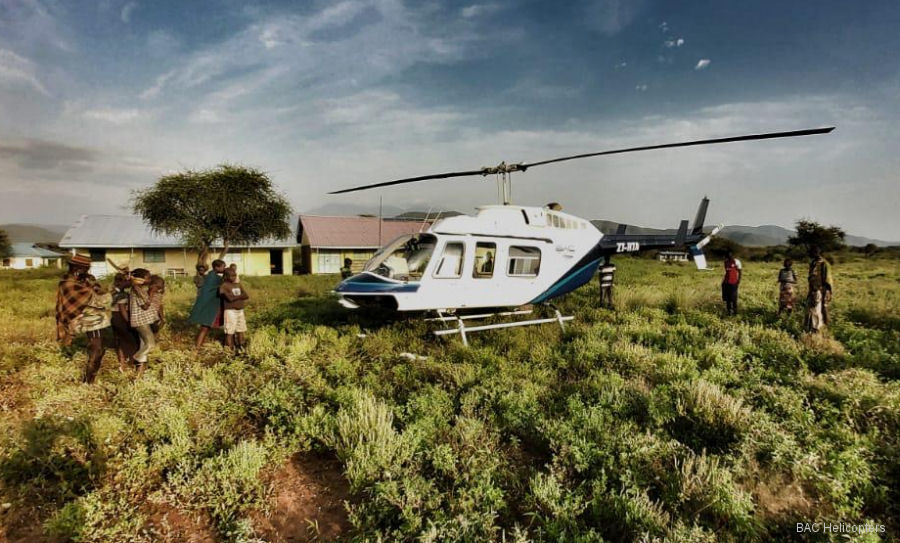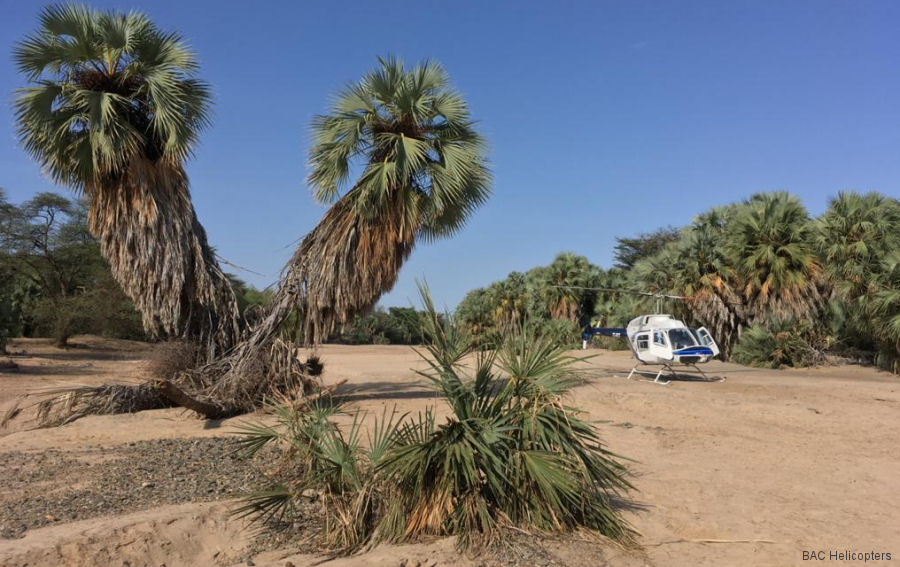
“In assessing our utility operations and potential future contract requirements, we felt the 206L-4 presented the most versatile and cost-effective option in this single engine category,” said Tremayne Thompson, Chief Executive Officer of BAC Helicopters. “The proven capability of the 206L-4 operating in diverse applications such as vertical reference, passenger charter, firefighting, aerial spraying and survey allows us flexibility to meet our clients’ requirements in terms of performance and reliability,” explains Thompson.
Over the past 10 years, BAC Helicopters has enhanced its operational capabilities through its various divisions, from helicopter operations in remote parts of Africa, to helicopter maintenance services and unmanned drone operations. The company employs a close-knit team of passionate aviation experts who are highly focused on customer service excellence.
The Bell 206L-4’s in the BAC Helicopters fleet, came into their own when the company was awarded a contract in early 2020, to carry out an Emergency Desert Locust Survey and Control operation in a very remote part of Kenya.
“The COVID-19 related travel restrictions throughout Africa proved challenging in every respect when it came to contract planning,” said Ashley Bell, Chief Operations Officer of BAC Helicopters. “Operating across borders in Africa can be challenging at the best of times when it comes to logistics and crew management, but an unprecedented global lockdown took it to a whole new level. Fortunately, our Bell 206L-4 fleet and specialized operational capabilities ensured we were able to meet the stringent contract requirements.”
The helicopters were tasked with surveying vast areas throughout the Marsabit and Turkana counties in Northern Kenya, locating and mapping the locust swarms which are threatening food security through the region. The 206L-4’s were each equipped with specialized Agricultural Survey Equipment, an FDC Barrier Filter and Satellite Tracking System. Essential data gathered by the survey helicopters was then transferred to both fixed wing and helicopter spraying aircraft, allowing them to accurately target specific areas where the locust swarms were present.
The helicopters operated at relatively high payloads and ambient temperatures of close to 40 degrees Celsius, often in very windy conditions. The BAC Helicopters crew and its client in Kenya were extremely impressed by the performance of the Bell 206L-4 helicopters in carrying out this humanitarian aid task under challenging conditions and in such a remote location.
“When we purchased our Bell 206L-4’s, our gut feeling was that we were making the right helicopter choice. Now we can confirm with confidence that our intuition was correct,” said Tremayne Thompson.
Emergency Desert Locust Survey in Kenya
BAC Helicopters, August 12, 2020 - During March 2020, as the global Covid-19 pandemic began building momentum and South Africa went into Level 5 Lockdown, BAC Helicopters was requested by an NGO to send two Bell 206L-4 Long Ranger helicopters to Kenya to carry out an Emergency Desert Locust Survey. East Africa has recently been plagued by a Desert Locust invasion, wreaking havoc to food security in the region.
With the uncertainty brought about by the virus, as well as related travel restrictions, particularly cross border travel, planning for the challenging ferry of the two helicopters from South Africa to Kenya began immediately. The routing saw the two helicopters traverse through four foreign airspaces before landing in Kenya, which required significant logistical planning. The Humanitarian Aid nature of the mission helped to motivate the necessity of the trip at a time when most countries where in a lockdown state of emergency.
The helicopters eventually departed the BAC base at Ballito in mid-May, having obtained all the necessary permits from the relevant authorities’ enroute. Our crew consisted of a pilot and engineer per helicopter; they were required to serve a mandatory quarantine period upon arrival in Nairobi, before the survey operations could begin.
The survey is being carried out in the northern part of Kenya, around the Turkana Lake. Our Long Ranger helicopters are equipped with specialised survey GPS systems, in order to map the areas where the locust swarms are present. Our pilot’s hold agricultural ratings and meet the required minimum level of experience in these types of operations, as stipulated by the contracting NGO. The information gathered by our survey helicopters is then transferred to chemical spraying aircraft, which target these specific problem areas in an effort to eradicate the locust swarms.
During early July, BAC Helicopters deployed a third helicopter to Kenya in support of the Desert Locust operations; an Airbus AS350-B2 equipped with a spray kit. This helicopter joined our two Long Ranger’s to enhance the operation by introducing spraying capabilities. Pest control spraying by helicopter has never been carried out in Kenya before, with BAC Helicopters being the first operator to demonstrate this to the Kenya Ministry of Agriculture.
BAC Helicopters is proud to be contributing to this Humanitarian Aid effort in East Africa; food security is vital to the sustainability and prosperity of the region. Through our professional service delivery, we are confident that we have made a positive impact in this noble cause.


See also |
Bell 206L-4 Long Ranger




